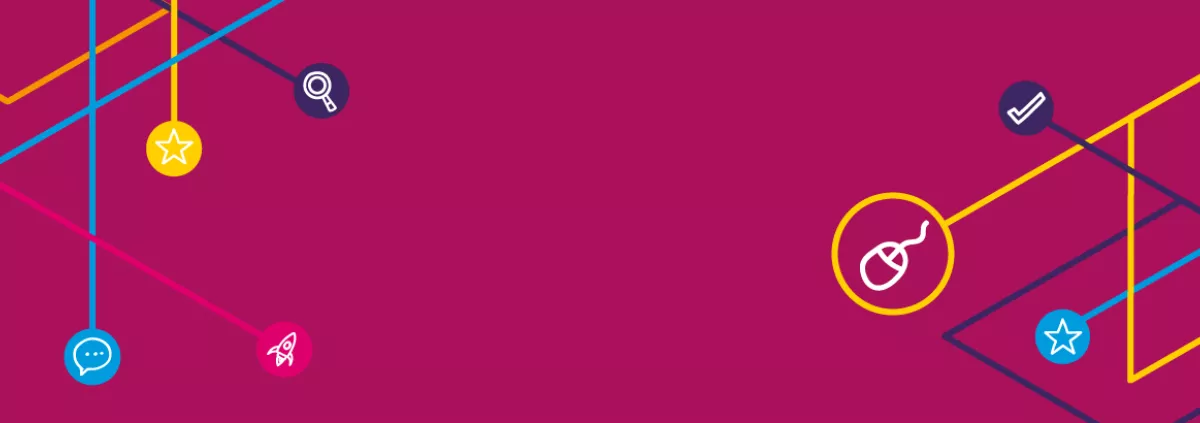Researchers and bloggers are in agreement social media and digital platforms can have immense value for teachers: “through our interactions with peers, we can reinforce in positive ways learning and learning opportunities”. But how does this happen? Who steers it? How do teachers and learners come together in networks?

Photo by Diggity Marketing on Unsplash
Many, including my colleague Vitaly Kopnov, would point to the ‘influencer’ as a distinctive and powerful agent when it comes to teaching and learning through networks. The influencer is a person or organization that is highly active in a network and who uses the network to transmit or resend messages, building up a large audience or following and, at the same time, establishing a reputation or status within the network. In network theory, ‘influencers’ are the nodes that connect together many remote and diverse participants – they are the bearings on which the mechanism turns.
Educational Influencers include classroom teachers, university academics, former teachers and education technology experts (reference). Influences are rated according to the size of their following and their engagement rate. According to the Influencer Market Hub, the worlds’ top educational influencer on Instagram is an Indonesian Applied Maths undergraduate studying in Japan. Jerome Polin Sijabat has more than 7 million subscribers to whom he teaches Japanese on YouTube.
I can give an example of an innovative Chemistry professor from Georgia: Ketevan Kupatadze writes regularly for teachers at mastsavlebeli.ge for 870 000 subscribers, describing and explaining natural phenomena accessibly and joyfully. Ketevan also runs her own YouTube channel that includes more than a hundred videos (in Georgian) that share her knowledge, her enthusiasm and her conviction that chemistry is relevant to our lives.

Another popular educator, Pavel Viktor, has created a collection of lessons in Physics for mid and high school. His channel on YouTube has 835 thousand subscribers and even the adults apparently enjoy engaging and interesting lessons, and often express gratitude in comments. Other notable education influencers in the Eastern Partnership region host internet educational platforms: Kirill Bigai from Ukraine, is a founder of the education platform Preply, that connects students with tutors, focusing mainly on language learning; Ivan Prymachenko, is a co-founder of Prometheus with more than 200 courses in Ukrainian in IT, coding, project management, languages, law, medicine, journalism, etc.

Lists of the top educational influencers are also available for Twitter and Youtube. Popular activities include a daily podcast with practical tips for teachers, interviews with educators, inspirational talks, reviews of edtech and networking opportunities and chatrooms. John Green’s CrashCourse Channel provides courses for classroom use and beyond, to 12.7 million subscribers, others like Mitchell Moffit and Gregory Brown AsapSCIENCE offer a weekly dose of fun science, and Vsauce by Michael David Stevens focuses on curiosity. #edchat is popular tag in Twitter.
Photo by Julia M Cameron from Pexels

While the popularity of these influencers is impressive they may not be offering very much in our national language, for our subjects and our schools. So, let’s consider ourselves to be the future influencers – who will fill this gap. What are their tips and tricks – that we can learn from. It’s helpful to have a popular and distinct topic or focus, it might be: Digital and Online Learning, Robotics, STEAM, or personalized learning or anything. However, practitioners argue that it’s even more important to maintain authenticity; that is to share our own first-hand experiences and our personal values. It may seem surprising but we seem to want the same online as offline – honesty, a sense of what is really important, a capacity to understand what others really care about.
Trust is another feature connected to good influencers. Obviously building trust takes time, and it can easily be lost if it comes to light that the influencer has been selling personal data or is acting for personal gain. Trust means that you are believed and respected and that your views are given more attention and value.
Of course, you cannot be an Influencer unless you can tirelessly and quickly Create Content. In a sense educators and especially innovative educators are already experienced content creators, having produced lesson plans, learning material, assessment rubrics and presentations for years. But producing content for the web is different – it is hard to win and keep attention: there are no walls to this classroom.
Content creating is linked to mastering a wide spectrum of disciplines –writing, designing, photo and video skills, project management and community outreach. In addition, you have to have an understanding of your audience – what is that they want to see and read?
In the case of the Innovative Educators Community, it is important to enjoy writing and storytelling. This platform is focused on telling stories, through blogs or by adding to and complementing the blogs of others. Many of us love to turn our experience into an engaging story – with perhaps some suspense, a build-up and a punch line. This community is multi-lingual so you can feel free to express yourself naturally and freely in your mother tongue – but don’t forget to keep it short!
Community management is another must do. Spreading the word through different platforms and media is vital to building your following and engagement. The key advice here is to listen and respond to your followers in a regular and consistent manner. You can you use technical tools such as notifications but try to be personal in your responses!
And finally, you must communicate your passion for what you are doing and saying. It is your passion that adds excitement and the emotional charge that makes your content stand out, that gives it impact for others and makes it worth the time you spend on it. Whilst we naturally have a passion for our teaching, we may need to learn to transfer that passion to sharing our practice.
I think it is also important to remember that success as an Influencer depends on the collective efforts of a community and not just upon the individual. If together we make the Innovative Educators’ Community a point of reference and a respected forum – then we are creating a platform that can provide an audience for any teacher who is ready to put in the effort to become an Influencer.
Do you know the influencers in education that are genuine and impactful? Please, name them in the comments.
Maybe you are one of the influencers and can share your experience and tips with the audience? Please, comment.
Maybe you have your content, resources or findings that you can share with the community? Please, do!

It might seem that Teachers and Influencers are at either end of the spectrum. A teacher aims to have a big effect on a few people; an influencer aims to have a tiny effect on many people. However, if you think about the career-ong effects of a teacher - maybe she can hope to have a modest effect on a a few thousand people but an intense effect on a few whilst an influencer might have a minute effect on an enormous number of people. Not so easy to do the math...
I agree Julian, teachers' influence could be critical in lifelong perspective for many, and their long-term responsibility is perceivably higher than of those having short-living massive following. The question is if the best educators could be influential beyond their classes and schools.
Please log in or sign up to comment.